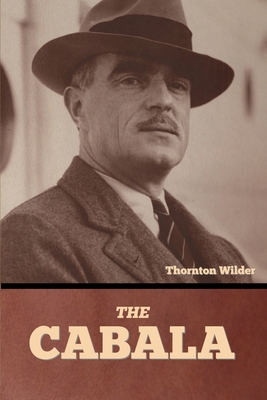The Cabala

The Cabala
After graduating from Yale University in 1920, Wilder studied archaeology in Rome. From 1930 to 1937 he taught dramatic literature and the classics at the University of Chicago.
His first novel, The Cabala (1926), set in 20th-century Rome, is essentially a fantasy about the death of the pagan gods. His most popular novel, The Bridge of San Luis Rey (1927; Pulitzer Prize), which was adapted for film and television, examines the lives of five people who died in the collapse of a bridge in 18th-century Peru. The Woman of Andros (1930) is an interpretation of Terence's Andria. Accused of being a "Greek" rather than an American writer, Wilder in Heaven's My Destination (1934) wrote about a quixotically good hero in a contemporary setting. His later novels are The Ides of March (1948), The Eighth Day (1967), and Theophilus North (1973).
Wilder's plays engage the audience in make-believe by having the actors address the spectators directly and by discarding props and scenery. The Stage Manager in Our Town (1938) talks to the audience, as do the characters in the farcical The Matchmaker (1954). Wilder won a Pulitzer Prize for Our Town, becoming the only person to receive the award in both the fiction and drama categories. The Matchmaker was made into a film in 1958 and adapted in 1964 into the immensely successful musical Hello, Dolly!, which was also made into a film.
Wilder's other plays include The Skin of Our Teeth (1942; Pulitzer Prize), which employs deliberate anachronisms and the use
PRP: 127.13 Lei
Acesta este Pretul Recomandat de Producator. Pretul de vanzare al produsului este afisat mai jos.
114.42Lei
114.42Lei
127.13 LeiLivrare in 2-4 saptamani
Descrierea produsului
After graduating from Yale University in 1920, Wilder studied archaeology in Rome. From 1930 to 1937 he taught dramatic literature and the classics at the University of Chicago.
His first novel, The Cabala (1926), set in 20th-century Rome, is essentially a fantasy about the death of the pagan gods. His most popular novel, The Bridge of San Luis Rey (1927; Pulitzer Prize), which was adapted for film and television, examines the lives of five people who died in the collapse of a bridge in 18th-century Peru. The Woman of Andros (1930) is an interpretation of Terence's Andria. Accused of being a "Greek" rather than an American writer, Wilder in Heaven's My Destination (1934) wrote about a quixotically good hero in a contemporary setting. His later novels are The Ides of March (1948), The Eighth Day (1967), and Theophilus North (1973).
Wilder's plays engage the audience in make-believe by having the actors address the spectators directly and by discarding props and scenery. The Stage Manager in Our Town (1938) talks to the audience, as do the characters in the farcical The Matchmaker (1954). Wilder won a Pulitzer Prize for Our Town, becoming the only person to receive the award in both the fiction and drama categories. The Matchmaker was made into a film in 1958 and adapted in 1964 into the immensely successful musical Hello, Dolly!, which was also made into a film.
Wilder's other plays include The Skin of Our Teeth (1942; Pulitzer Prize), which employs deliberate anachronisms and the use
Detaliile produsului









